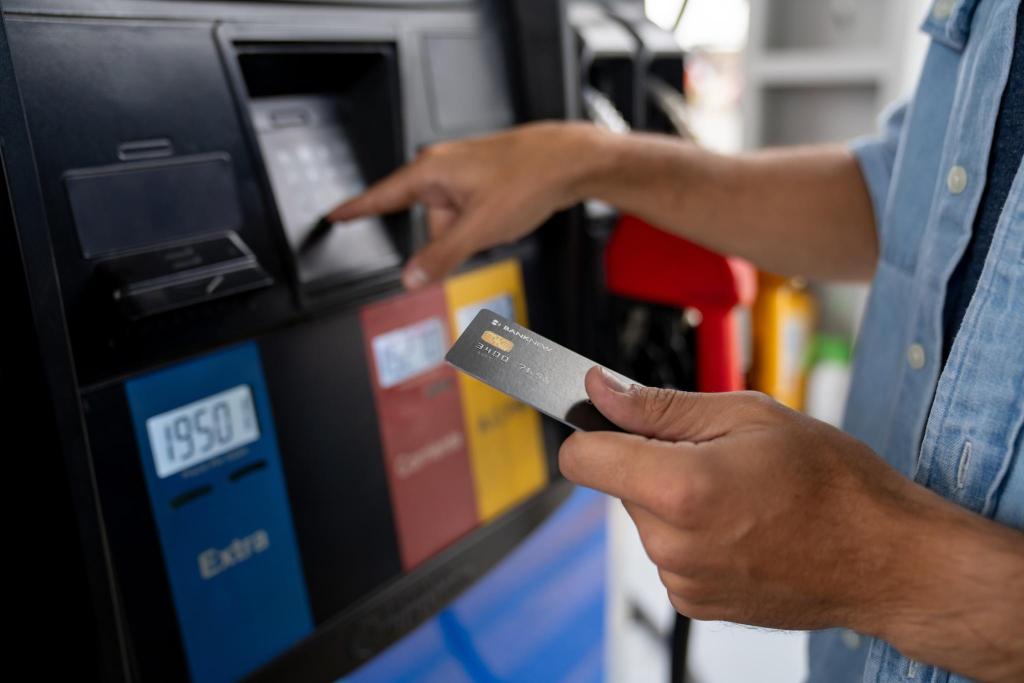
What Is The Best Fuel Policy For My Rental?
When renting a car, it's vital to understand the fuel policy options offered by rental companies. These policies lay out how much gas should be in the tank when you return the car, and that can make a big difference in your final bill.
Renting a car often involves making decisions about various policies and options, and fuel policies are a particularly important one. This guide will explain the different fuel policies available when you rent a car and help you determine which one best fits your travel plans. Understanding these policies can save you money and help you avoid unexpected charges, making your rental experience hassle-free.
Car hire fuel policies explained

When renting a car, it's vital to understand the fuel policy options offered by rental companies. These policies lay out how much gas should be in the tank when you return the car, and that can make a big difference in your final bill.
Let's take a look through the most common fuel policies you'll encounter:
Full to full
This policy is straightforward and often preferred by renters. You pick up the car with a full tank, and you’re expected to return it with a full tank. The main advantage is that you only pay for the gas you use. However, failing to return the car full can result in charges at the rental company’s fuel rate, which is usually higher than local fuel prices.
Full to empty (Pre-purchase)
Under this policy, you pay upfront for a full tank of gas when you collect the car, and you can return it as empty as possible. This option is convenient as it eliminates the need to find a gas station before you return the car. It's ideal for those expecting to drive long distances but can lead to paying for unused gas if you don’t use the whole tank.
Same to same
In this scenario, you’re required to return the car with the same amount of gas it had when you picked it up. This policy requires you to keep a close eye on the fuel gauge to ensure you refill the tank to the exact level it was at when you started, which can sometimes be a guessing game.
Pre-purchase with refund
Similar to the full to empty policy, you pay for a full tank at the start of your rental. However, with this option, you’re refunded for the gas you don't use. While this policy offers flexibility, it often comes with a non-refundable service charge, making it less economical if you don’t use much of the tank.
How to know which policy is right for you

Choosing the right fuel policy for your car rental involves considering several factors. Here's how to find the most cost-effective and convenient option:
Assess your travel needs
Start by considering the nature of your trip. If you're planning to drive long distances, a full to empty policy might be suitable, as it allows you to use as much gas as needed without worrying about refueling before you return the car. For short rentals, a full to full policy might be cheaper, as you're likely to use less gas and can easily refill the tank to avoid additional charges.
Consider your budget
You’ll also want to factor in the impact that each fuel policy will have on your budget.
- Full to full: Generally, this is the most cost-effective option if you’re sure you can refuel the car before returning it. With this option, you only pay for the gas you use at local pump prices.
- Full to empty: This can be more expensive as you pay upfront for a full tank at the rental agency's rates, which are typically higher than at local stations.
- Same to same: This policy requires precise fuel management, which can be stressful but avoids any prepaid fuel costs.
- Pre-purchase with refund: Consider whether the convenience outweighs the potential service charge applied to the unused fuel refund, which can increase overall costs.
Factor in convenience
You should also think about how convenient each policy is based on your itinerary. If your schedule is tight or you have an early flight, you might not want to stop and refuel the car. In such cases, a full to empty policy, despite its potential for higher cost, offers the convenience of not having to refuel before returning. In some remote or rural areas, finding a gas station might be challenging. A pre-purchase policy could relieve the worry of refueling in unfamiliar territory.

- Adventure travel
- City breaks
 Can you move to an empty seat on a flight?August 5, 2025
Can you move to an empty seat on a flight?August 5, 2025 Understanding Car Rental AgreementsMarch 14, 2025
Understanding Car Rental AgreementsMarch 14, 2025 Safe Driving Tips For Hot WeatherFebruary 26, 2025
Safe Driving Tips For Hot WeatherFebruary 26, 2025 A Guide to Driving on the Right Side of the RoadFebruary 15, 2025
A Guide to Driving on the Right Side of the RoadFebruary 15, 2025 How to Find the Car Rental Counter at AirportsDecember 19, 2024
How to Find the Car Rental Counter at AirportsDecember 19, 2024 Your Guide to Booking, Picking Up and Returning a Rental CarDecember 17, 2024
Your Guide to Booking, Picking Up and Returning a Rental CarDecember 17, 2024 Assigning additional drivers to a rental carJune 28, 2024
Assigning additional drivers to a rental carJune 28, 2024 How to tell if your rental car needs diesel or gasJune 28, 2024
How to tell if your rental car needs diesel or gasJune 28, 2024 Your complete guide to car rental insuranceJune 28, 2024
Your complete guide to car rental insuranceJune 28, 2024
You might also like these
Lost rental car keys? Learn what to do next and how to manage the situation effectively to minimize stress and costs.
Do you have to clean a rental car? These tips will help you keep vehicles clean during your travels and avoid unexpected cleaning charges afterward.
Finding a car rental with unlimited miles is easier than you think. These expert tips will help you enjoy your trip without worrying about extra fees.
Not sure if you should rent a manual car? In this guide, we discuss how different transmissions can suit your preferences and your license.
Find the perfect family car rental for your next road trip. Choose a vehicle that offers comfort, space, and reliability with our guide.
Navigate US car rental requirements and learn everything you need to know to rent a car as an international traveler.









